Potatoes are one of the most popular vegetables in the world, and at the same time, they raise dozens of questions.
If you’re a young adult who just started to live on your own, you’re probably wondering how long do potatoes last and how should you store them.
Or if refrigerating them helps extend their shelf life or not. Or even if when one of the vegetables in the bag is rotten then should the rest be discarded too.
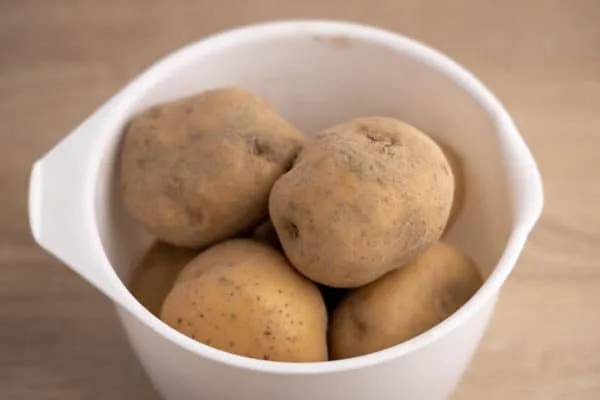
If you’re a bit more experienced, there are still some questions often asked.
Many people aren’t sure what to do with sprouted potatoes, or whether a potato with a green tinge is toxic. Soft and wrinkled potatoes are also discussed widely and often.
And if you’re looking for answers to these or similar questions, you’re in the right place. Below we talk about spoilage signs of potatoes and which of them actually mean that you should throw out the tubers.
We also cover storage and shelf life, in case you’re looking for some tips and specifics on these topics.
Let’s start with the topic that causes the most confusion, and that is going bad of potatoes.
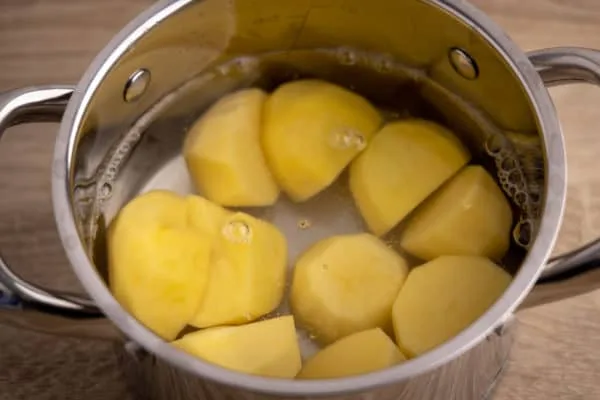
Can Potatoes Go Bad? How To Tell If Potatoes Have Gone Bad?
It won’t come as a surprise that potatoes indeed do go bad. So now the big question: how to tell if a potato has gone off and should be discarded?
If a large portion of the surface is moldy or rotten, throw it out. If it’s only a small part, like less than a third, it’s up to you if you cut out the off part and use the rest, or throw it out. Same thing about the “interior” or the flesh of the tuber.
That’s about it when it comes to sure signs of spoilage. Now let’s talk about specific issues mentioned earlier and how to go about them.
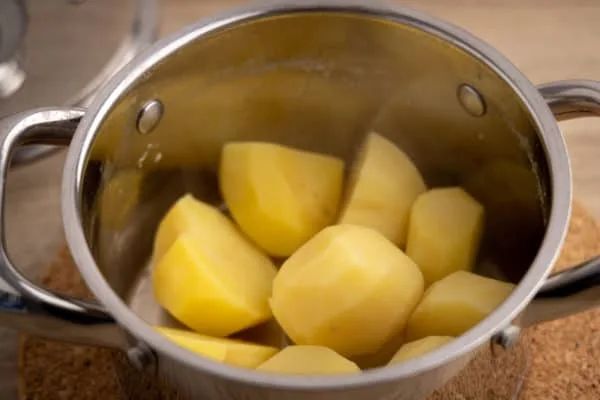
Is it safe to eat potatoes that have sprouted?
If the vegetable starts to grow, you can still cook it ([ILL][PG]). Cut out the sprouts and the “eyes” they leave on the surface while you’re prepping the veggies and you’re good to go.
The exception here is that if the sprouts are very long, like 5+ inches, it’s probably better to throw them out.
It’s not about the length, but what it tells us about the storage conditions. It informs us that the tubers were stored for quite a long time in a (probably) not-cold-enough temperature. That means they won’t be that good quality-wise.
The same is true for sprouting sweet potatoes.)
Potatoes don’t go bad when they sprout, but if you leave them growing for too long, it’s probably better to toss them out.
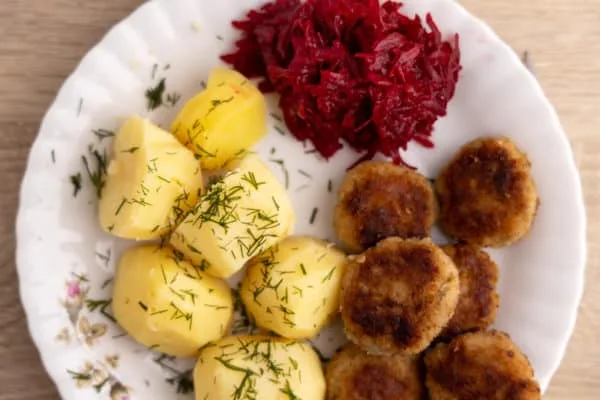
Are soft and wrinkled potatoes bad?
Long story short: it depends. If the potato is not as firm as it used to be, and the skin has started to become somewhat wrinkly, it’s okay to eat it. Such tubers might be a bit difficult to peel, and they will definitely work better in mashed potatoes than fresh fries.
The quality definitely won’t be top notch, but they should still be reasonably okay to eat. But once the vegetables start to shrivel, that means they’re losing water, and it’s time for them to go.
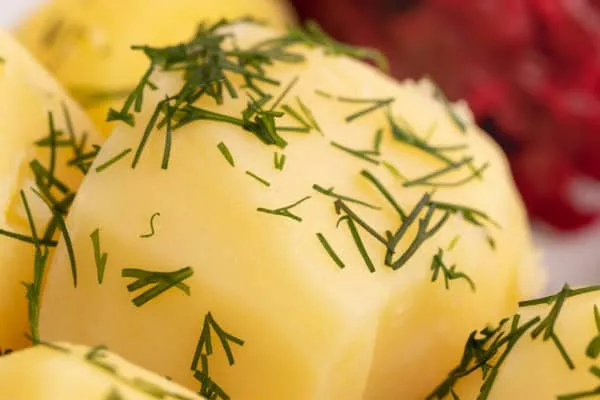
Can you eat potatoes with a green tinge?
This question usually generates answers that cover solanine poisoning and all that jazz. And the truth is that the concentration of solanine in a potato is smallest in the tuber flesh ([WIKI]), so there’s really nothing to worry about.
Just cut out the green skin and part of the potato and eat the rest ([ILL][SD]).
In case you were wondering, the green tinge is a reaction to light exposure ([ILL]). So if you’ve bought potatoes that were perfectly normal, and they turned green while being stored, you need to up your potato-storage game (more on that later).
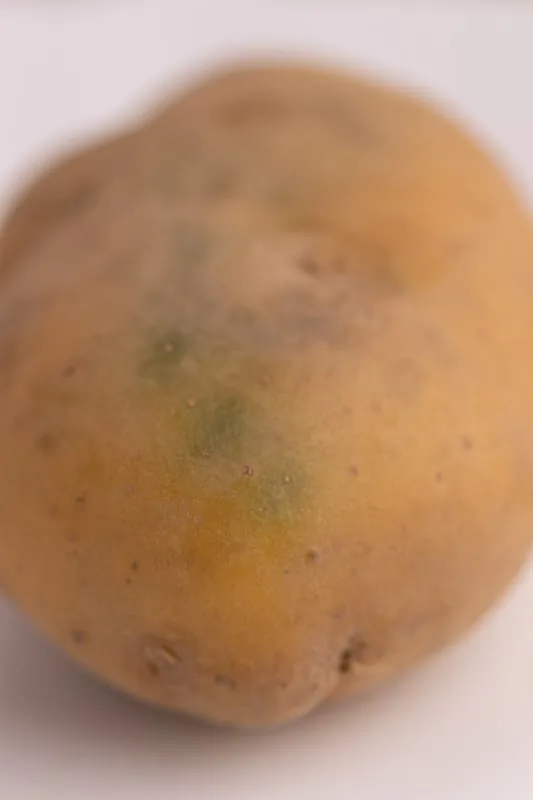
If one potato is rotten, are they all bad?
Nope, just throw out the bad ones and eat the rest.
The bacteria tend to spread fairly quickly, so it makes sense to give your potatoes a check every week and throw out the off ones. This way, more of the tubers will survive storage and end up cooked on your plate.
Now that you know how to deal with most of the typical potato-related issues, it’s time to go through some storage tips.
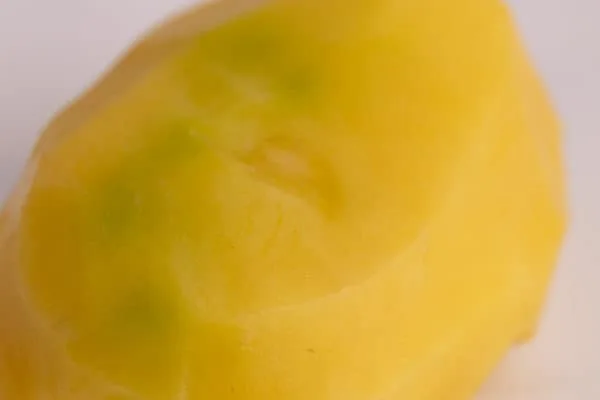
How To Store Potatoes So They Last As Long As Possible?
First off, once you get home with the potatoes, don’t wash them. If there’s too much dirt, brush them off (like you do with carrots), and put into storage.
You should store potatoes in a cool and dark place, with good air circulation ([ILL]). When it comes to storage temperature, the ideal is 45˚F to 50˚F (or 7˚C to 10˚C) ([ILL][PR]).
Unfortunately, barely anyone has a place that maintains such temperature. But if you happen to have a basement that maintains a similar or slightly higher temperature, keep the potatoes there. If not, let’s talk about how you can store the spuds at home.
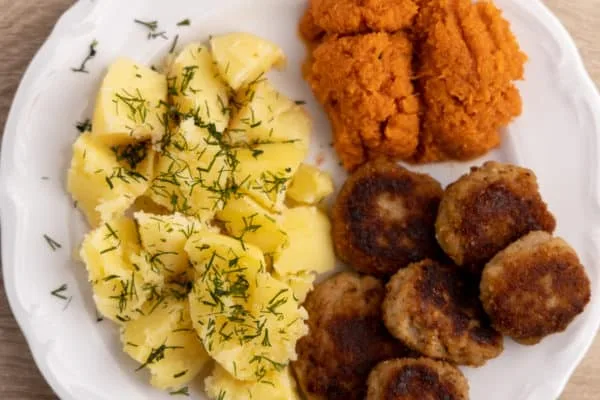
Let’s start with the fridge. If you’ve ever thought about refrigerating potatoes, don’t. Fridge temperature will convert starch into sugar, and it will result in off-tasting potatoes that turn brown during cooking ([ILL]).
That means you’re basically left with storing the potatoes at room temperature, or maybe slightly below in a pantry. That’s not a perfect solution, but it’s good enough. Just make sure you meet the other conditions, that is the tubers are away from light and have access to air.
With that in mind, let’s talk about the shelf life of potatoes.
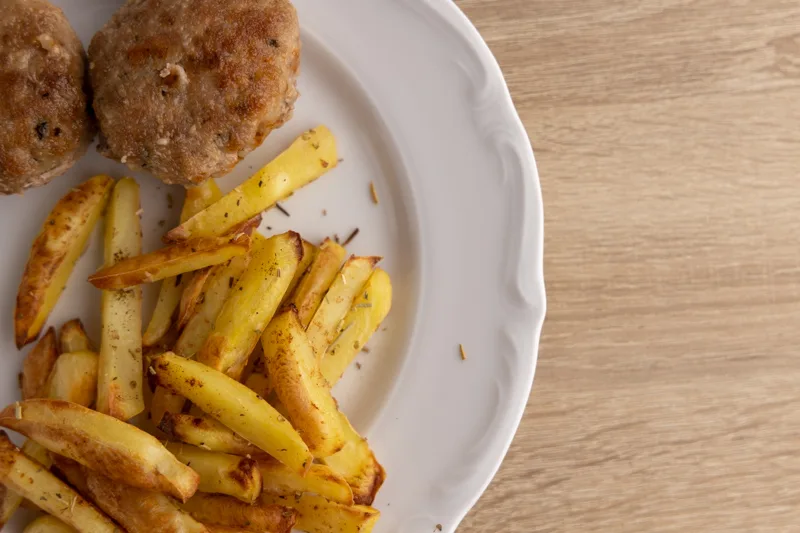
How Long Do Potatoes Last?
Potatoes have one of the longest shelf lives among veggies. They obviously don’t last as long as garlic or onions, but still, they last quite some time. And as usual, the better storage conditions you provide, the longer they keep.
If you’re among the lucky ones who have access to a cold basement, your potatoes can sit there for up to 3 to 5 months, depending on the variety.
If all you have available is a pantry or a dark cabinet in the kitchen, the potatoes should retain good quality for up to 2 weeks ([ILL][SD]).
In my own experience, they often last even a week or so longer in quite okay quality (if it’s not the middle of a hot summer). Sprouts show up, and the spuds start to lose their firmness, but they’re definitely good enough to cook with. That’s just my personal opinion though, so take it with a grain of salt.
Last but not least, different varieties of potatoes and seasons play a role too. Some last longer, others a bit shorter, and if it’s hot and humid outside, potatoes won’t keep as long as in the winter.
Summary
- Keep potatoes at a cool place, but do not refrigerate them
- Sprouting potatoes are not bust, just cut the sprouts and enjoy them like you usually do
- Cut out any green spots on the surface
- Potatoes usually last 2 weeks or more at room temperature; if the temperature is lower, they should retain quality for longer